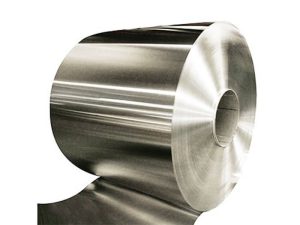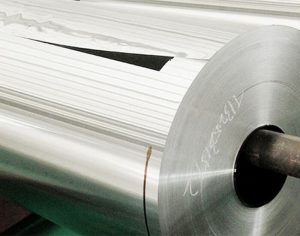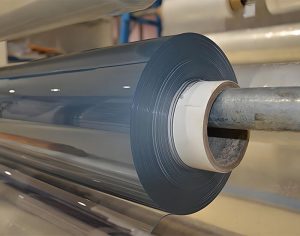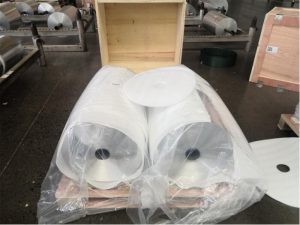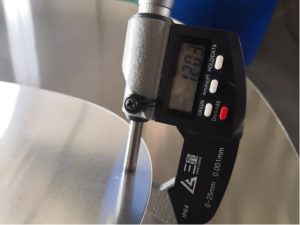Anodized aluminium coils are a versatile and highly sought-after material in various industries due to their exceptional properties. At Huasheng aluminium, we specialize in manufacturing and wholesaling anodized aluminium coils that cater to the diverse needs of our clients. This article aims to provide a detailed overview of anodized aluminium coils, their specifications, characteristics, classifications, common alloys, applications, anodizing process, methods, and frequently asked questions.
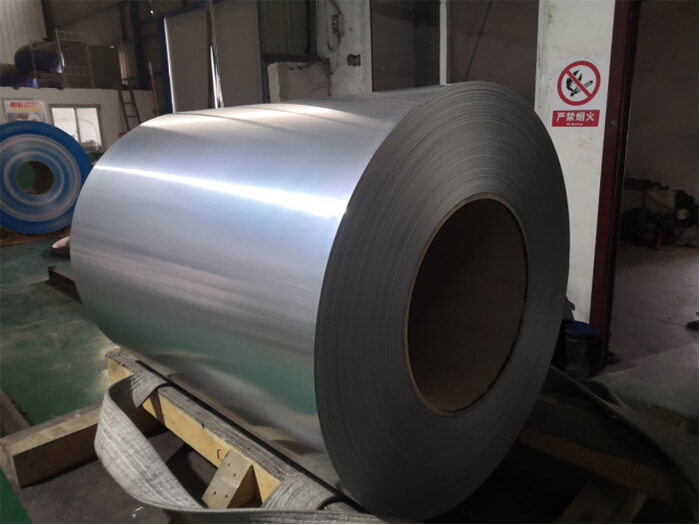
Specifications of Anodized aluminium Coil
Anodized aluminium coils are available in a range of specifications to meet different requirements. Here’s a detailed breakdown:
Thickness
| Specification |
Description |
| 0.2mm – 3.0mm |
Standard range |
| 0.5mm, 0.8mm, 1.0mm, etc. |
Common thicknesses |
Width
| Specification |
Description |
| 1000mm – 1600mm |
Standard range |
| 1220mm, 1250mm, 1500mm, etc. |
Common widths |
Length
| Specification |
Description |
| Customizable |
Determined by customer needs |
Characteristics of Anodized aluminium Coil
Anodized aluminium coils possess several characteristics that make them ideal for various applications:
Durability
Anodized aluminium coils are more durable and longer-lasting than untreated aluminium.
Corrosion Resistance
They protect aluminium from environmental elements, including moisture and chemicals, and are highly resistant to rust and corrosion.
Color Stability
For color-coated anodized aluminium, the oxidation helps seal the dye and stabilize the color, reducing fading or discoloration.
Aesthetics
Anodized aluminium coils have a smooth, satin-like finish that enhances their appearance and are suitable for architectural and decorative applications.
Low Maintenance
The protective oxide layer on anodized aluminium reduces the need for frequent cleaning or maintenance.
Electrical Insulation
The oxide layer of anodized aluminium is an electrical insulator, making it suitable for applications where electrical conductivity needs to be limited or controlled.
Lubricity
Anodized surfaces can exhibit improved lubricity, making them suitable for applications requiring reduced friction.
Heat Resistance
Anodized aluminium coils can withstand relatively high temperatures without losing their protective properties, suitable for applications involving heat exposure.
Environmentally Friendly
The anodizing process is considered environmentally friendly, does not involve heavy metals or harmful chemicals, and anodized aluminium is fully recyclable.
Non-toxic
Anodized aluminium is non-toxic and safe for use in a variety of applications, including those that come into direct contact with food or beverages.
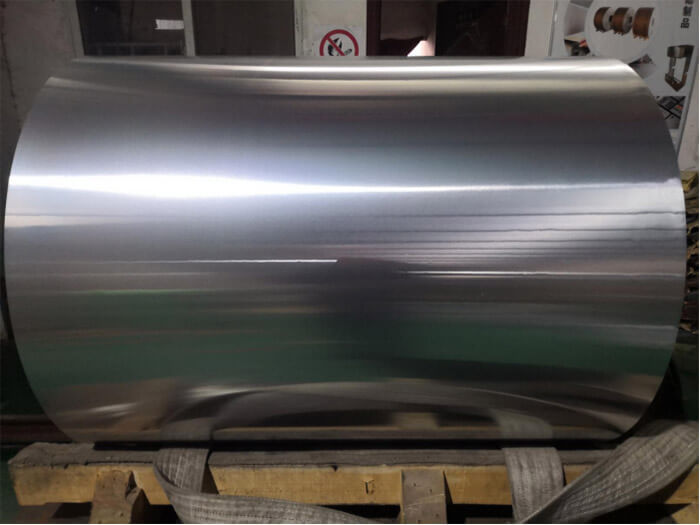
Classification of Anodized aluminium Coil
Anodized aluminium coils are available in a wide range of colors, finishes, and textures, making them suitable for a wide range of applications.
Type by Color
| Color |
Description |
| Silver White |
Most common color |
| Black |
Popular for certain applications |
| Gold |
Aesthetic appeal |
| Bronze |
Unique finish |
| Rose Gold |
Modern and stylish |
| Dark Gray |
Sophisticated look |
Type by Surface Treatment
| Surface Treatment |
Description |
| Matt |
Soft, matte texture |
| High Gloss |
High reflectivity |
| Pearlescent |
Decorative effect |
| Brushed |
Slender texture |
Texture Classification
| Texture |
Description |
| Flat |
Suitable for most applications |
| Raised |
Emphasizes layers and three-dimensionality |
| Sunken |
Unique visual effect |
| Water |
Natural and vivid effect |
| Tree |
Suitable for creating a natural atmosphere |
Common Alloys for Anodized aluminium Coil
The anodizing process can be performed on various aluminium alloys such as 1100, 3003, 5005, 5052, and 6061. Here’s a breakdown of common alloys and their applications:
1050 Anodized aluminium Coil
| Application |
Example |
| Interior Decoration |
Wall cladding, ceilings, furniture, cabinets |
1060 Anodized aluminium Coil
| Application |
Example |
| Lighting Fixtures |
Reflectors, lampshades |
3003 Anodized aluminium Coil
| Application |
Example |
| Reflective Signs |
Advertising signs, traffic signs |
5005 Anodized aluminium Coil
| Application |
Example |
| Solar Reflector Panels |
Energy-saving building materials |
5052 Anodized aluminium Coil
| Application |
Example |
| Home Appliances |
Rice cooker liner, pressure cooker, oven shell |
Applications of Anodized aluminium Coil
Anodized aluminium coils have a wide range of applications, including:
Building Decoration
Anodized aluminium coils are commonly used in architectural applications such as cladding, roofing, facades, and window frames.
Automotive and Transportation
Anodized aluminium coils are used in the automotive and transportation industries for components such as trim, body panels, and wheels.
Electronics and Appliances
Anodized aluminium coils are used for parts such as housings, covers, and heat sinks for electronics and appliances.
Decorative and Artistic Applications
Anodized aluminium coils are also used in decorative and artistic applications such as signage, jewelry, and artwork.
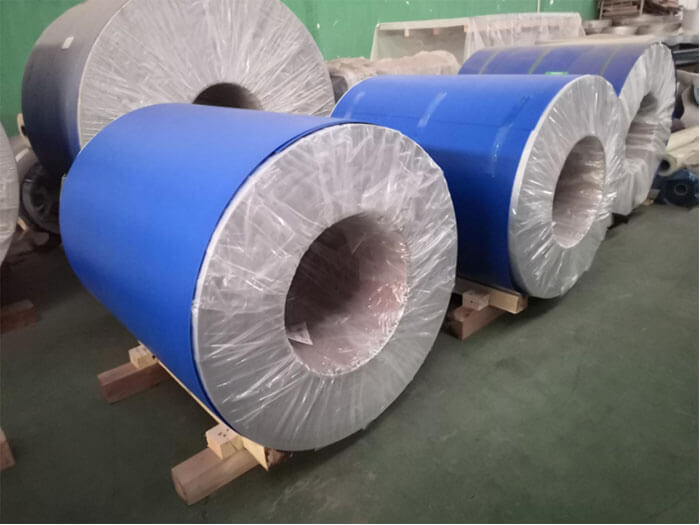
The Anodizing Process
The anodizing process is generally divided into three main stages:
Preprocessing Stage
- Cleaning the aluminium surface
- Chemical treatment
- Etching for a satin-matte look
- Bright impregnation for enhanced shine
Anodizing Stage
- Passing electric current through the aluminium immersed in an electrolyte bath
- Formation of a hard and porous anodized film
- Control of coating thickness
Post-processing Stage
- Tinting the porous anodized film
- Use of organic dyes for color
- Sealing the anodized film using a hot water bath
Anodizing Methods
Different anodizing methods are suitable for different products and production needs:
Continuous Coil Anodizing
- Suitable for large capacity, roll material, and foil products
- Offers a variety of metal and film thickness options
- Enables precise color control and uniformity
Plate Anodizing
- Suitable for wide boards and large products
- Suitable for small batch production
- Thicker film anodized edges can be achieved
Batch or Single Piece Anodizing
- Suitable for extrusion, casting, and other products requiring strict molding
- Suitable for small batch production
- Thicker film anodized edges can be achieved
Frequently Asked Questions
Can anodized aluminium coils be colored?
Yes, anodized aluminium coils can be colored using a process called “anodizing and dyeing.” The porous oxide layer created during anodization can be infused with dyes to achieve a variety of colors.
Is anodized aluminium coil safe for food contact?
Yes, anodized aluminium is considered safe for direct contact with food and beverages. The oxide layer is non-toxic and inert, making it suitable for applications where food safety is a concern.
